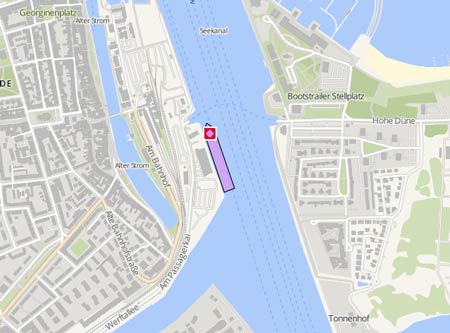RUBYMAR
Kurs/Position
Die letzten Häfen
Die letzten Wegpunkte
Die neuesten Nachrichten
Appeal to contribute to oil spill response equipment after sinking of bulk carrier
The International Maritime Organization (IMO) has gone public with an appeal to the world community inviting in-kind contributions of spill response equipment to support the Republic of Yemen. The organization published an appeal that seeks the donation of an ROUV or ROV along with a list of equipment to be used in cleanup efforts. The call for contributions of oil pollution response equipment was to support operations related to the sinking of the 'Rubymar'. During the time the vessel was drifting and slowly taking on water, the U.S. Central Command and others highlighted the growing environmental disaster. The IMO highlighted that there were 200 tonnes of heavy fuel oil and 80 tonnes of marine diesel on board. In the days following the attack, an oil slick grew behind the vessel extending 18 miles from it. Another major concern was that the 'Rubymar' was transporting over 41,000 tons of ammonium phosphate-sulfate fertilizer when it was attacked. Environmentalists have emphasized the dangers if it leaks into the Red Sea. The ship went down in about 328 feet of water, with the remaining bunker fuel and fertilizer cargo onboard representing a significant environmental threat to the Republic of Yemen, in particular to the nearby Hanish Islands. Recognizing the lack of specialized oil spill response equipment within the country to respond to a possible leak or other environmental issues, the IMO was inviting in-kind contributions of spill response equipment in support of the Republic of Yemen. In addition to the ROV, they were calling for equipment including a shovelhead skimmer, nozzles used in cleaning efforts, towing brindles, anchoring equipment, and a broad range of personal protective equipment.
Anchor of Rubymar behind sea cable damages in Bad el-Mandeb Strait
The anchor of the 'Rubymar', which was hit on Feb 18 by two anti-ship missiles fired by the Houthis, and drifted for a distance of around 30 nautical miles, before sinking on March 2, scraped over the sea bed and damaged three sea cables - the 15,000 kilometer Seacom/Tata cable which runs through East Africa and also connects it to India; the Asia Africa Europe-1 (AAE-1), which winds 25,000 kilometers and connects Europe to East Asia; and the Europe India Gateway (EIG), 15,000 kilometers long and linking India to the United Kingdom. The three submarine cables are located in the Bab el-Mandeb Strait, which separates Africa from the Arabian Peninsula between the Red Sea and the Gulf of Aden, and the damage caused problems of internet, both in East Africa and in Vietnam.
No immediate ecological danger from wreck expected
The sinking of the 'Rubymar' south of the Hanish Islands, a Yemeni archipelago in the southern Red Sea, was posing "no immediate danger", Christophe Logette, the director of the France-based accidental water pollution management centre Cedre, said on March 8: "At this stage there is no immediate danger. The ship is on the seabed, the hull is in relatively good shape." The main concern was the fate of the thousands of tonnes of fertiliser. But so far they were in their storage compartment and there was no trace at the moment of this product being released into the sea. There had been no leak from the tanks containing around 200 tonnes of propulsion fuel and 80 tonnes of diesel either. The fear was that if any of the fertiliser were to seep out, it would dump a huge amount of nitrate into the water, causing massive algae blooms which would choke marine life. But water has probably filtered into the hull and the cargo. The fertiliser will be wet and so will dissolve very slowly in very low concentrations, with a restricted effect on the marine environment. Report with photo: https://menafn.com/1107959764/Expert-Says-No-Immediate-Danger-From-Sunken-Ship-Off-Yemen
News schreiben

